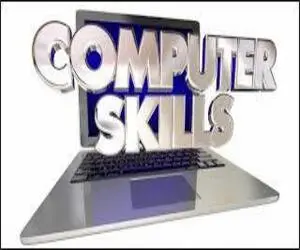Today we are going to discuss what is computer operator? So guys are you ready for this topics for discuss with us a computer operator is a role in IT that oversees the running of computer systems, ensuring that machines and computers are running properly. A computer operator’s job, as defined by the United States Bureau of Labor Statistics, is to “monitor and control … and respond to … enter commands … set up controls on computers and peripheral equipment. This does not include data entry.
Contents
What is Computer Operator?
A computer operator is a professional who controls the operation of computer networks and ensures that equipment and systems are operating efficiently. Computer operators have a wide range of job opportunities in almost all industries. Becoming a computer operator also provides ample room for specialization and consequently, a higher earning potential. In this article, we’ll discuss what computer operator is, what their duties are, and what skills and abilities they may need to do their job.

A computer operator is someone who may have a number of specialized job roles related to computer operations. Based on their expertise, operators may also be known as
- Computer programmer
- Program writer
- System Analyst
- Systems engineer
- Software developers
- Network Architects
- The technicians
- Application Programmer
- System Software Specialist.
What is the role of the computer operator?
Computer operators supervise and operate computer hardware, software and information networks in accordance with prescribed codes of practice. They are in charge of installing and maintaining a company’s computer systems and networks, often diagnosing hardware and software problems. Every industry requires computer operators to maintain an inventory of their hardware and ensure that all components are working properly at all times.
These are some common tasks for computer operators.
- Assessing the computational needs of the client or company
- inventory management
- Starting a program by inputting computer commands
- Addressing equipment malfunctions and software problems
- Ensuring the security of the computer network of an organization
- Change machine settings as needed
- Performing preventive maintenance such as installing antivirus software and ad blockers
- Configuring the Desktop and Other Hardware Components
- Responding to client inquiries and issues
- Collaborate with the IT team for updates and modifications
- Creating, recording, and interpreting data
- Make necessary documentation.
Overview
The position has evolved from its beginnings in the punch card era. A Bureau of Labor Statistics report published in 2018 showed that, in the public sector, a major employer of people classified as computer operators was the United States Postal Service. In the private sector, companies involved in data processing, hosting, or related services employ computer operators at an even higher rate. The states with the highest employment for computer operators are New York, Texas, California, New Jersey, and Florida, as of 2018.
Essential Skills for Computer Operators
If you want to become a computer operator, you may want to consider developing the following skills
Problem-Solving Skills
Computer operators are required to find realistic solutions to problems faced by their customers. They often develop systematic strategies to identify areas for improvement in computer systems.
Analytical Skills
Computer operators use their analytical skills to read and interpret raw data to make estimates. They have to correlate the findings and gain useful insights, which can potentially solve errors and problems. The ability to work with and process large amounts of data is an advantage in this field.
Organizational Skills
Computer operators use their analytical skills to read and interpret raw data to make estimates. They have to correlate the findings and gain useful insights, which can potentially solve errors and problems. The ability to work with and process large amounts of data is an advantage in this field.

Communication skills
Operators need verbal and written communication skills to communicate complex technical concepts to customers. They also need to communicate with other professionals such as retailers, customers, software engineers, and IT managers to perform some of their daily roles. Written communication skills can be useful when you need to produce well-formatted reports for others to examine.
Attention to Detail
Computer operators may need to remember or note down hardware and software specifications for future reference. They must pay good attention to detail to avoid accidents and waste time. Attention to detail is also key to maintaining inventory and fully understanding client needs.
Also check:
-
5 Best Computer Course in India for Private Job (India में प्राइवेट नौकरी के लिए 05 BEST कंप्यूटर कोर्स)
-
Google jobs in India | Google में चाहिए नौकरी तो कर ये 5 कोर्स - मिलेगा लाखों का पैकेज | Google Jobs
-
Retail Management Career | Retail Jobs | How to get Retail Management Job
-
How to Start Earning as a Graphic Designer?
-
Paramedical Courses | Paramedical Career | कम बजटऔर कम फीस में मेडिकल करियर बनेगा
Eligibility for Computer Operator
Higher Secondary Education
You must have completed at least your higher secondary education to apply for computer operator jobs. To pursue undergraduate courses in science, you may need 50% aggregate marks in your 10+2 from a recognized board. Employers often prefer candidates who have studied subjects such as physics, chemistry, mathematics, and computer science.
Bachelor's Degree or Diploma
Bachelor’s degree or Diploma course in computer science or related field. Popular courses include BSC (Bachelor of Science) in Computer Application, BA (Bachelor of Arts) in Computer Application, Computer Science Engineering, or BTech (Bachelor of Technology) in IT. These courses have the potential to equip students with relevant knowledge regarding fundamental aspects of software design, operating systems, and computer applications.
Work Experience
You may need a few years of work experience to apply for positions in large companies and reputed institutions. Work experience also significantly improves your earning potential as a computer operator. You may want to apply for an entry level role to get started in the field.
Certification
Consider obtaining certification from recognized institutions to improve your employability. For example, you can go for Certificate in Office Computer Operator course from IISDT (Indian Institute of Skill Development Training) or get Computer Operator and Programming Assistant (COPA) certification Offered by the Industrial Training Institutes (ITI) across the country. Can Certificates are more cost-effective than formal degrees, and they allow you to enter the workforce immediately after your 10+2.
What are the various types of computer operators?
Computer operators may work on specific aspects of computer systems in large organizations. Because of the variety of tasks they may be assigned, they tend to specialize in some aspect of computer operation in which they have experience or interest. Domain functions within computer operations create roles such as
Mainframe Operator
With the boom in cloud computing infrastructure, the demand for mainframe operators has increased significantly. Individuals and companies prefer to outsource their hardware need to companies that allow them to access their services and infrastructure through the cloud. Larger firms may have their mainframe and network infrastructure that requires occasional maintenance.
Network Administrator
Network administrators ensure that private or public Internet networks remain functional and efficient. They troubleshoot network connectivity problems and recommend hardware and software fixes. Network administrators provide employees of a company with the credentials, access, and resources they need to perform their job roles.
Network Support Executive
Network support is typically a customer-facing role where you communicate with customers and clients to find solutions to specific problems. Network Support Executives can develop long-term relationships with customers and develop a detailed understanding of their networking needs.
Database manager
A computer operator who works as a database manager can create or modify computer databases. The operator may also be in charge of designing and implementing security measures to secure data systems.
User Support Specialist
This is another customer-facing role where you may have to help customers solve their day-to-day problems in the field of computer applications. Support experts must have extensive knowledge of their company’s services, products, and infrastructure to provide useful tips to users.
How Much Do Computer Operators Earn?
The average basic salary of a computer operator is ₹2, 20,201 per annum. This figure may increase depending on your qualification, skills, and work experience. Computer operators may work in-house for companies or as independent contractors for multiple clients. Both these ways have their pros and cons. For example, in-house employees may enjoy benefits such as insurance and paid leave. Independent contractors may be able to increase the size of their client base and significantly improve their earning potential over time.
What are the responsibility of computer operator?
- Examples of responsibilities from real computer operator resume that represent the typical tasks they are likely to perform in their roles
- Making data available by running a computer.
- Determines the order of operations by studying production schedules.
- Perform defined tasks as per company procedures.
- Monitoring and manipulating daily tasks set by a system.
- Maintaining incident logs for any problems that may arise.
Conclusion
A computer operator is a person responsible for using computers, fixing computer problems, and supervising computer use by other people in their department. The actual extent of a computer operator’s job role will be determined by the exact position he holds, the company the individual works for, and the amount of responsibility the individual is given. Overall, the job role of a computer operator is one that is varied and satisfying. Should one have good knowledge regarding computers and be well versed with such knowledge, starting a career as a computer operator can be a wise move on their part.
FAQs
Computer operators manage to ensure computer systems run smoothly and securely to maintain productivity and minimize disruptions to their employers. They solve problems with software and hardware and identify ways to improve business computer systems for better performance and productivity.
Somputer operators manage to ensure computer systems run smoothly and securely in order to maintain productivity and minimize disruptions to their employers. They solve problems with software and hardware and identify ways to improve business computer systems for better performance and productivity.
A computer operator is an advanced knowledge of computer electronics including circuit boards, chips, processors, and peripheral equipment. Excellent Problem Solving Skills. Knowledge of current operating systems, enterprise, networking, and office software. Knowledge of administrative and clerical processes.
Whether you are looking to work your way up from your current role or you are looking for computer operator roles that match your skills, there are many different ways to find a job as a computer operator. If you feel you might need a little assistance, the Field Engineer here can advise you and help you find the right role that suits your skills.
To install System Software Specialist. Keypuncher. To install Computer jock. Computer designer. If you see then a 35-year veteran of General Mills, he started as a computer operator working with punch cards and paper tape.”
- Interview Questions for Computer Operator:
- Why do you think that the computer operator is an important part of the IT team?
- What methods do you use to troubleshoot hardware problems? ,
- How to handle user requests when time is limited? ,
- What software system are you most familiar with?
“I have five years of experience as a computer operator, which makes me an ideal candidate for this position. I also have excellent communication skills, which is important in this role as I will be required to work with a number of different departments.


